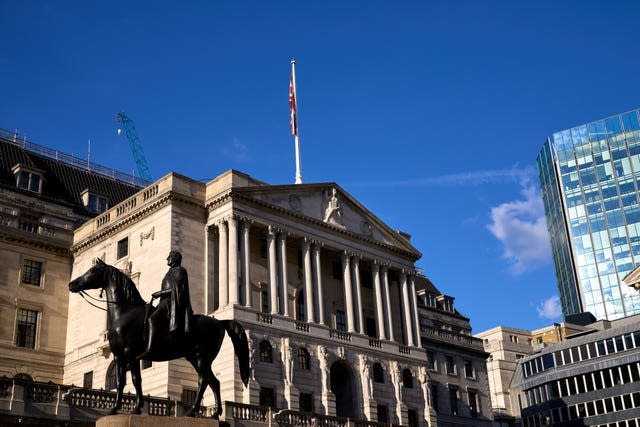Chancellor to set out ‘concrete plan’ to reduce debt, says Treasury minister
The Chancellor will set out a “concrete plan” later this month to reduce the UK’s debt in order to ensure economic stability, a Treasury minister has said in the wake of recent financial turmoil.
But while acknowledging this would mean “difficult decisions”, Tory frontbencher Baroness Penn told Parliament the needs of the most vulnerable would be safeguarded.
The Conservative peer made her comments as the Bank of England raised interest rates to 3% in the biggest single hike since 1989.
The move will pile around £3,000 per year on to mortgage bills for those households that are set to renew their borrowing deals, the Bank said.

It also warned the UK could be on course for the longest recession since reliable records began in the 1920s.
Jeremy Hunt is due to reveal the Government’s latest fiscal plans on November 17, with up to £50 billion of spending cuts and tax rises under consideration as he confronts a gaping financial black hole.
He previously ditched major debt-funded tax cuts announced in September’s ill-fated mini-budget, that triggered market chaos and led to the end of Liz Truss’s short-lived term as prime minister.
The was addressed by Lady Penn during a debate on financial stability in the House of Lords, when she told peers: “It is important to acknowledge that while well intended the recent growth plan did have unintended consequences for economic volatility.
“Mistakes were made and we have taken steps to fix them. Most of the tax measures in the growth plan have been reversed and the associated volatility dissipated.”
She said: “But the fact remains that we are still faced by a profound economic crisis, with global inflationary pressures driven by increased demand post-Covid, elevated energy prices after Putin’s invasion (of Ukraine), widespread labour shortages and in response central banks across many major economies raising interest rates.”
Lady Penn added: “The Chancellor has been clear that we will take the measures needed both to restore confidence and trust in the UK’s public finances and to deal effectively with the economic shocks that are being felt across the globe.
“In doing so there will be difficult decisions to take, but in taking them this Government will protect the needs of the most vulnerable.”
She went on: “The Prime Minister and the Chancellor are clear that the priority will be to ensure economic stability by setting out a concrete plan to get debt falling in the medium-term.
“But they are also clear about their priorities when taking the difficult decisions that this will necessarily entail. To support the most vulnerable and to drive growth to ensure that we have a strong economy, building the jobs for the future and our resilience to the shocks of the future too.”
Earlier, the former president of the Confederation of British Industry (CBI), Lord Bilimoria told the upper chamber the widely-criticised mini-budget was “a good plan” but was critical over the timing of the measures during a cost-of-living crisis.
He said: “The intentions for growth, the intentions to cut taxes are good.”
“In life, more often than not it’s not just what you do, but how you do it.”
Referring to the “irrational exuberance” of Ms Truss and her then chancellor Kwasi Kwarteng, Lord Bilimoria added: “Timing is everything”.

 Yahoo Finance
Yahoo Finance 